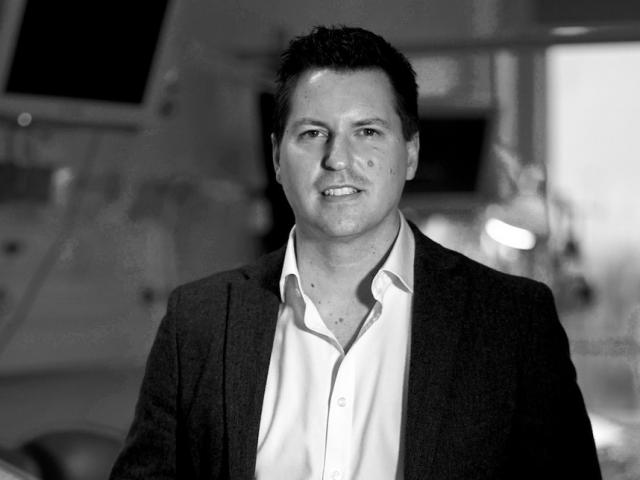
Wales led study finds induced hypothermia after cardiac arrest does not improve survival
24 June
A study into the effectiveness of cooling the body temperature of cardiac arrest patients, led in the UK by University Hospital Wales (UHW) and supported by Health and Care Research Wales, has found the treatment does not improve chances of survival.
Since the early 2000s, best practice has been to cool unconscious cardiac arrest patients to as low as 33 degrees Celsius, with previous evidence suggesting hypothermia greatly improves patient survival. The evidence for the guidelines was considered weak, and a large international randomised clinical trial was initiated, led globally by researchers at Lund University in Sweden with an important contribution from nine hospitals across the UK.
Health and Care Research Wales Specialty Lead for Critical Care and intensive care doctor at UHW, Dr Matt Morgan helped Professor Matt Wise lead the study for all UK sites.
Wales contributed the second largest number of participants from the UK, recruiting 54 patients to the study including Cardiff based participant Andrew Barnett who suffered a cardiac arrest during a football match, similar to Christian Eriksen.
He was one of the 1900 patients in the trial and survived to return to playing football.
Dr Matt Morgan said: “These results will help us care for the sickest of patients fighting for survival after a cardiac arrest.
“Christian Eriksen’s case has brought cardiac arrest into the lime light, and showed how evidence-based care administered quickly can save lives. Research like this, going on behind the scenes in hospitals, is equally as important in improving patient survival and outcomes, not only finding out what does work but also what doesn’t to avoid valuable time being wasted.”
Jade Cole, lead specialist research nurse in Cardiff said: “We are so grateful to all of the patients and their families who have participated in the study and helped the trial to be a success.
Dr Nicola Williams, Director of Support and Delivery at Health and Care Research Wales said: “Seeing research like this making real-world changes to practice reminds us all how essential it is for Wales to keep contributing to global studies.”
Niklas Nielsen who was global lead for the study said: “It is important to set high standards for clinical studies, partly to determine what should be introduced in healthcare, partly to challenge the practices that are already in use - to ensure that we have got it right and that healthcare is evidence-based.”